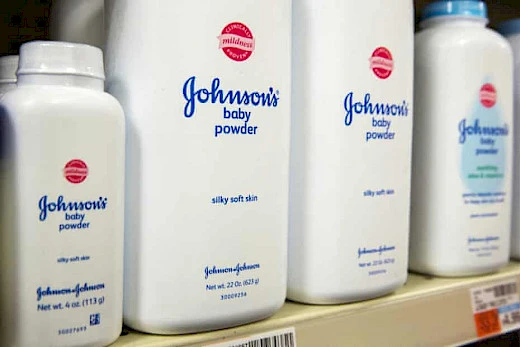In the United Kingdom, thousands of people have filed a lawsuit against Johnson & Johnson over baby powder that allegedly causes cancer.

More than three thousand residents of the United Kingdom have filed a class action lawsuit in the High Court of London against the American corporation Johnson & Johnson, claiming that its talc-based baby powder may have contained asbestos particles and contributed to the development of cancerous diseases.
The plaintiffs state that the company was aware of the potential danger of the product but concealed the risks for years and continued sales. According to lawyers, total compensation claims exceed £1 billion. Among the defendants are also subsidiaries of the corporation, including Kenvue UK — a division previously responsible for consumer goods.
The complaints note that most talc deposits in the world naturally contain asbestos impurities, meaning the manufacturer was obliged to carry out additional safety checks. The plaintiffs allege that Johnson & Johnson funded research and marketing campaigns aimed at minimizing the perception of risk.
Among the victims are mostly women who used baby powder for many years. A significant number of them have been diagnosed with ovarian cancer or mesothelioma — a rare form of cancer associated with asbestos exposure.
Johnson & Johnson denies the allegations, insisting that all its products have undergone rigorous testing and fully comply with safety standards. Company representatives stated that numerous scientific studies have not confirmed the presence of asbestos in the powder and have not proven a direct link between talc use and cancer.
Previously, the company had already faced thousands of similar lawsuits in the United States. In 2020, Johnson & Johnson stopped selling talc-based baby powder in North America, replacing it with a version made from cornstarch. In the United Kingdom and Europe, such a replacement occurred only in 2023.
Lawyers note that the British case could become one of the largest class action lawsuits in the country's history and may influence international regulation of the safety of cosmetic and hygiene products.
You may also be interested in:
- A British woman was detained at Paphos Airport with 225 boxes of unmarked cigarettes
- The legendary Chippendales will visit Cyprus for the first time
- Cyprus strengthens support for migrant children in schools
- The Forestry Department has released 18 Cypriot mouflons into the wild
- Storm “Byron” hit Cyprus: heavy rains, tornadoes and power outages


